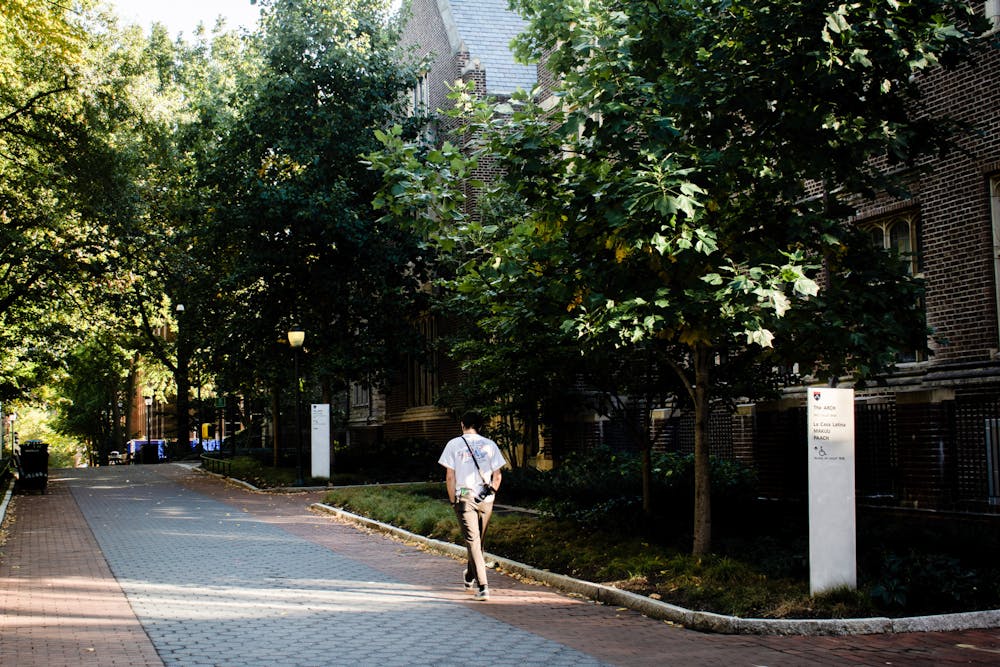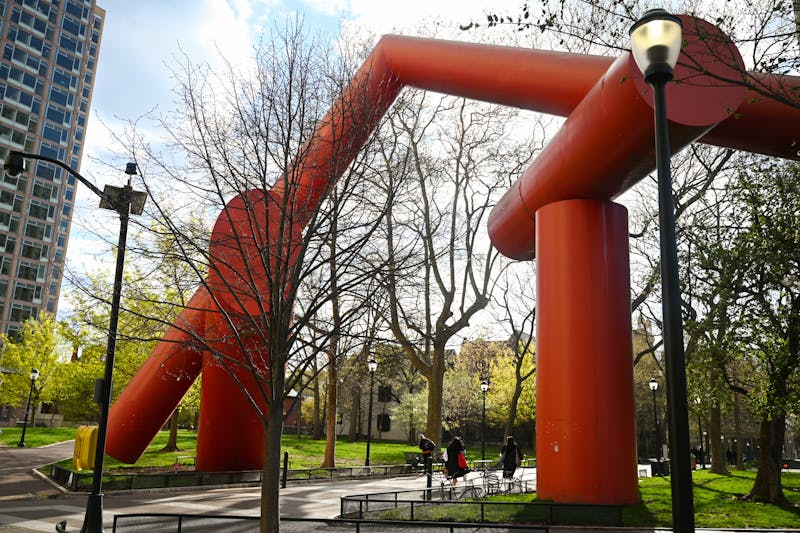
It probably shouldn’t have taken me a year of attending the University of Pennsylvania to figure out that leaving to go to another school — in my case, UNC Chapel Hill — was the right decision for me. After all, I had decided to apply to Penn more or less at the last minute, adding one more school to my list because I had finished the applications to schools I actually wanted to attend with plenty of time to spare. And Penn was the only school where I had searched for what universities wanted to hear and tried to make my supplemental essays conform to a formula – not lying, but very much pushing the version of me that I knew elite colleges wanted to see.
Maybe it was because of the chipper persona I adopted in those essays that, on the evening of March 31, 2022, I found myself with an acceptance from Penn, and without one from the school that had been my top choice throughout the admissions process. However, I wasn’t really taking the offer seriously until I mentioned the news to my friends that it hit me how nobody shared my lack of interest in Penn. Bright students from around the world were willing to swindle their way into this spot, and here I was, ignoring it to pore over financial aid info from McGill. Maybe there was something to all this Penn hype.
A month and a good deal of peer pressure later, I begrudgingly accepted my offer from Penn. I reasoned that, if the supposed benefits of prestigious colleges panned out, it was worth much more than the downside risk of transferring to one of my second-choice schools.
I may sometimes regret accepting that Penn offer in the first place. I may sometimes regret sticking around for a second semester after it was clear that the school wasn’t a good fit for me. But I have never regretted leaving.
There are three reasons why Penn didn’t work out for me: the culture, the cost, and the constraints.
I can't say that Penn's culture was bad for everyone, but I can say that it was bad for me. I wasn’t the type of person to succumb to the peer pressure to prioritize career prestige and advancement above all else. I was the type of person to be annoyed by the finance-dominated atmosphere. My particular enemy was the obsession with “networking,” which encourages making fake connections for personal gain. Yet what drove this feeling home was seeing a concerning number of my peers valorize amoral behavior, claiming to support good causes in public, but admitting privately to being fully insincere. There was always an ambiguity as to whether these comments were fully serious, but even the jokes are concerning given Penn’s track record of producing fraudsters.
And that’s all without considering the more minor irritations. While there’s a lot I loved about Penn, particularly the enthusiasm for extracurriculars like this very newspaper, there definitely were cultural mismatches between myself and the university. Many, but not all, had no interest in exploring Philadelphia, and viewed anywhere beyond Locust Walk as inherently unsafe. That, combined with the high proportion of Penn students living and eating on-campus, meant that social events revolved around underage drinking, an awkward fit for me and my fellow teetotalers.
I don’t mean to present an entirely negative picture — I made quite a few good friends at Penn. But I’ve enjoyed UNC’s atmosphere more, and I think that would be true even if I didn’t have some friends here already. The university is more integrated with the community, so social life is more likely to include going to places off-campus, which tend not to be centered around getting blackout drunk. Consequently, I can anecdotally report that UNC students are happier and less stressed than their Ivy League counterparts in Philadelphia. UNC’s social environment isn’t right for everyone either, but this just goes to show that the non-academic experience does matter.
Still, I wasn’t as happy as I expected with my academic experience at Penn. There were incredible academic opportunities: ample student research, giant libraries, good outcomes in graduate school, and more. But, it also has downsides. For one, I found out in my first year that I definitely wanted to double major, necessitating a schedule jam-packed with required classes for the next three years. Unfortunately, this discourages students from exploring wide-ranging interests, an effect compounded by the hoop-jumping nature of the general education curriculum, exemplified by the much-hated writing seminar.
The argument for Penn having such tight academic schedules, achieved by restricting credit for AP classes, requiring many classes for majors, and forbidding credit for most dual-enrollment classes, is that it ensures academic rigor. This is a nice argument in theory, but I haven’t seen additional academic rigor in practice. Some courses and programs are harder at one school than the other, and maybe Penn has fewer incredibly easy majors — but I don't think I’ve challenged myself less academically by turning down Penn’s supposedly superior options.
None of this was helped by the fact that my family was paying much more to attend Penn, even with some financial aid, than had I attended almost any other school I was admitted to. This probably isn’t true for students now: Penn has changed its financial aid schema significantly since my admission in 2022, in ways that significantly benefit families in the middle and upper-middle class.
One reaction might be that this is the wrong way to think about cost; the higher earning potential of a Penn career will pay off in the long run. A recent study showing that highly ranked colleges raise one’s chance of being at the very top of the income distribution, or entering prestigious occupations, adds to that critique. However, I still mostly stand by a negative assessment of the financial impacts of Penn that I wrote in 2023; even this new study finds that prestigious college attendance does not increase mean earnings. All this means that, then as now, whether the cost is worth it depends on personal factors.
This isn’t to say that there aren’t things I miss about Penn. I miss the Schuylkill River, the surprisingly good salads in Houston Market, and the feeling that we were all in the center of power, seeing the levers of the world move before us. I miss the Effective Altruism group, the literary translation magazine, and this newspaper. But I wouldn’t change my decision if I had the chance.
This is all well and good for me, but the question is whether these factors apply to others. I’d love to be able to cite a massive survey of what Penn students think, but I’ll instead have to rely on my anecdotes from years ago. Dissatisfaction with life at Penn was widespread. My peers were striving to become the person Penn wanted them to be. They were joining three consulting clubs, working in a critical vertical in a growing space, hoping to turn that into an offer in investment banking and its lucrative cousins to recoup the expense of a Penn education. Their mental health might not have survived that ordeal, but at least they had “prestige.”
I might have given up that prestige, at least among the small segment of society that cares about college rankings. But I’m content with my life and the job I have lined up, two things that I have no idea if I could have said had I stayed at Penn. I can’t tell anybody else what to do with their life, but if leaving was the right decision for me, maybe it’s also the right decision for you.
BENJAMIN McAVOY-BICKFORD is a senior at the University of North Carolina, studying economics and linguistics. His email is bmcavoyb@ad.unc.edu.
The Daily Pennsylvanian is an independent, student-run newspaper. Please consider making a donation to support the coverage that shapes the University. Your generosity ensures a future of strong journalism at Penn.
Donate







